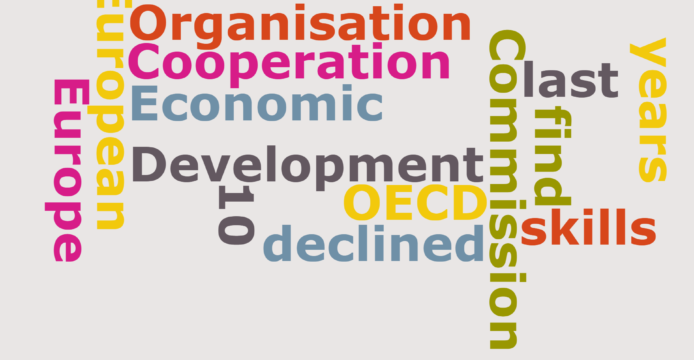The European Commission and the Organisation for Economic Cooperation and Development (OECD) find that skills have declined in Europe over the last 10 years
Following a first edition in 2013, the European Commission and the OECD have published this last December a comprehensive survey assessing the literacy, numeracy and problem-solving ICT skills of adults aged 16-65 in 20 Member States of the EU, as well as third countries such as Japan and the US. The findings demonstrate the importance of developing and using skills to improve employment prospects, quality of life and boost economic growth.
Despite efforts to strengthen education and adult training over the last decade, the survey found that adult literacy declined in seven Member States, only significantly improving in Finland and Denmark, while only Finland, Estonia, Denmark and the Netherlands made progress in numeracy skills. The survey also shows that skills inequalities between lowest- and best-performing adults have widened within countries, especially in literacy.
More specifically, on numeracy proficiency, eight countries saw their average scores improve, with Finland and Singapore recording the largest gains. But in most countries, the literacy proficiency of the lowest performing 10% of the population has declined, with similar declines in numeracy. At the same time, the performance of the top 10% has improved, leading to widening skills inequalities within countries. In 2023, Singapore and the United States displayed the largest skills inequalities in literacy and numeracy.
“Adults with higher numeracy skills are more likely to be employed, earn a higher wage, and report better health and life satisfaction than those with lower numeracy skills,” OECD Secretary-General Mathias Cormann said. “This Survey underscores the urgent need for a comprehensive re-evaluation of how countries support the development of foundation skills. As technology reshapes many jobs, these skills are more important than ever to face the future of work. By investing in skills, governments will support a more resilient and inclusive workforce that helps sustain prosperity for all.”
Finland, Japan, the Netherlands, Norway and Sweden are the best-performing countries in all three domains. Eleven countries (Chile, Croatia, France, Hungary, Israel, Italy, Korea, Lithuania, Poland, Portugal and Spain) consistently perform below the OECD average in all skills domains.
Skills remain a priority for the European Commission. To address the labour and skills shortages, the new Commission is committed to developing an overarching strategy under the Union of Skills. The Commission continues to support the Council Recommendation on Upskilling Pathways and the Council Recommendation on Individual Learning Accounts, including through numerous projects funded by EU funds.

